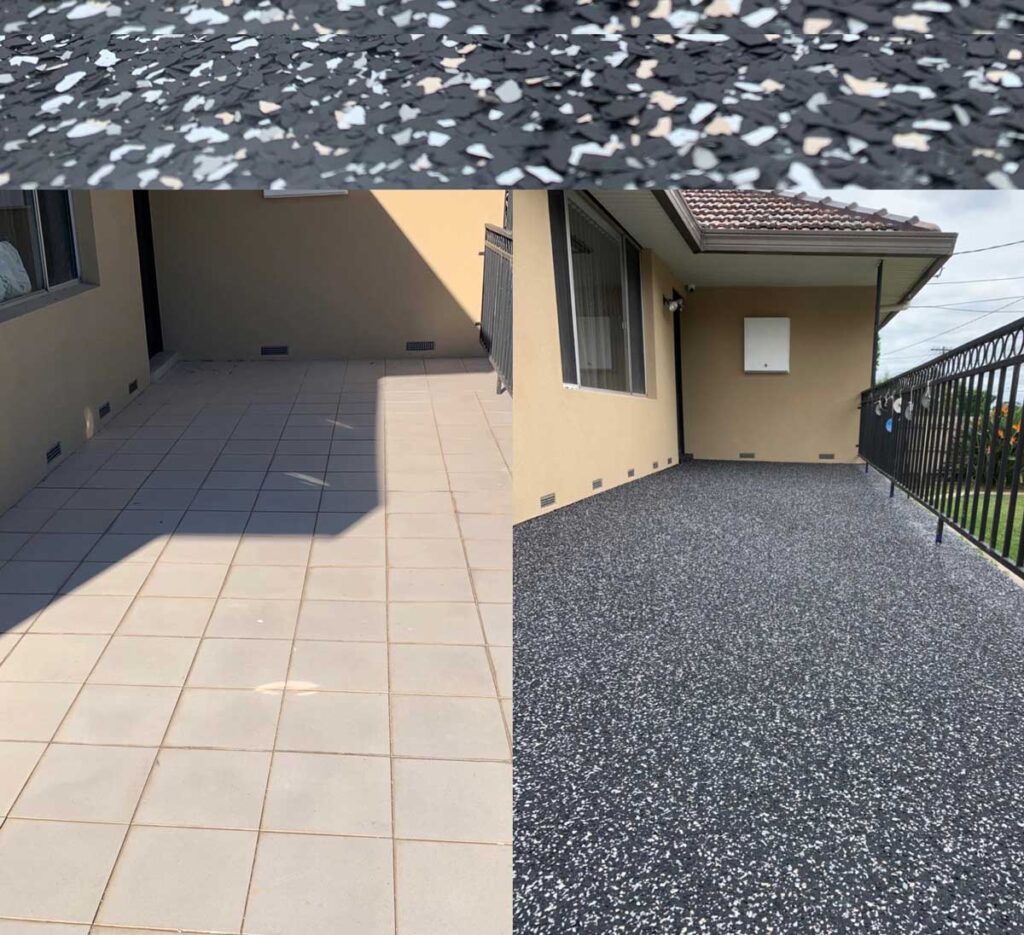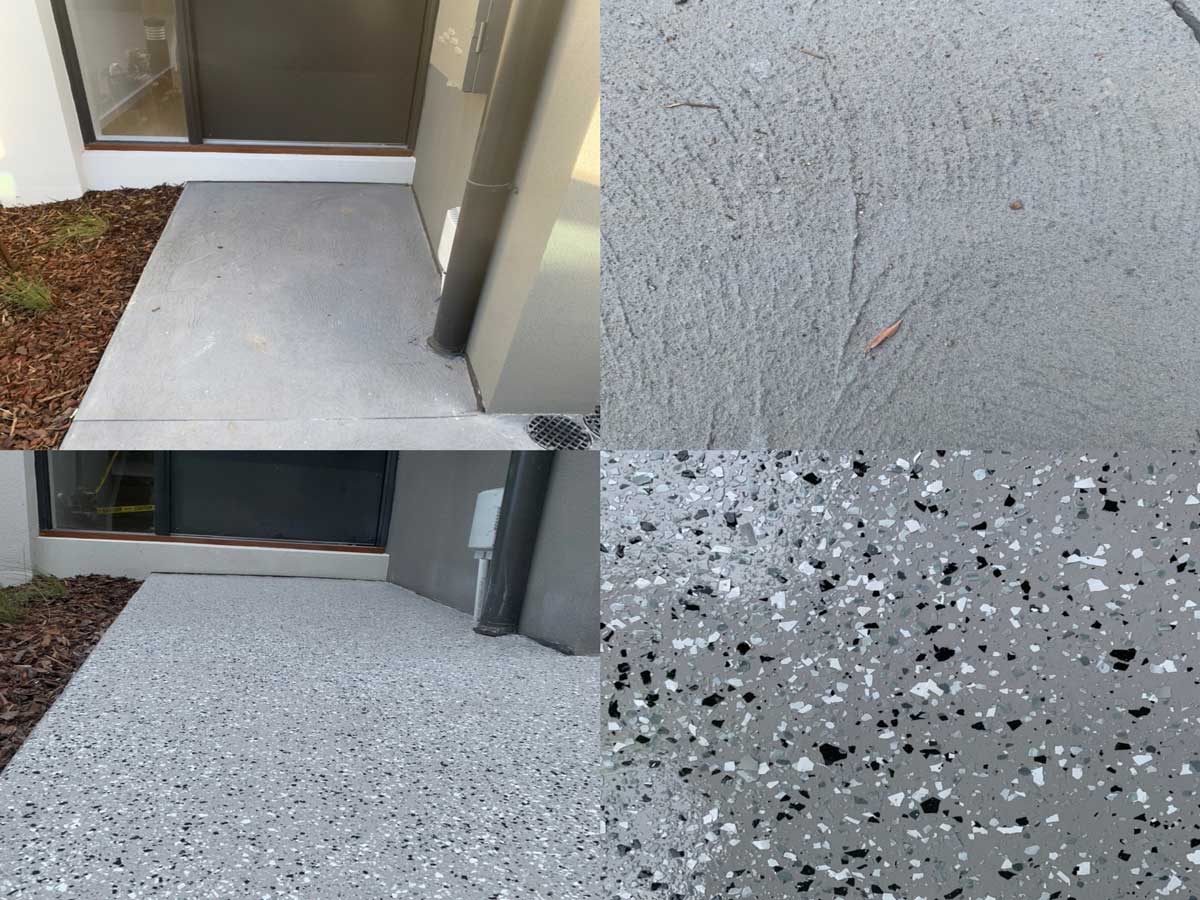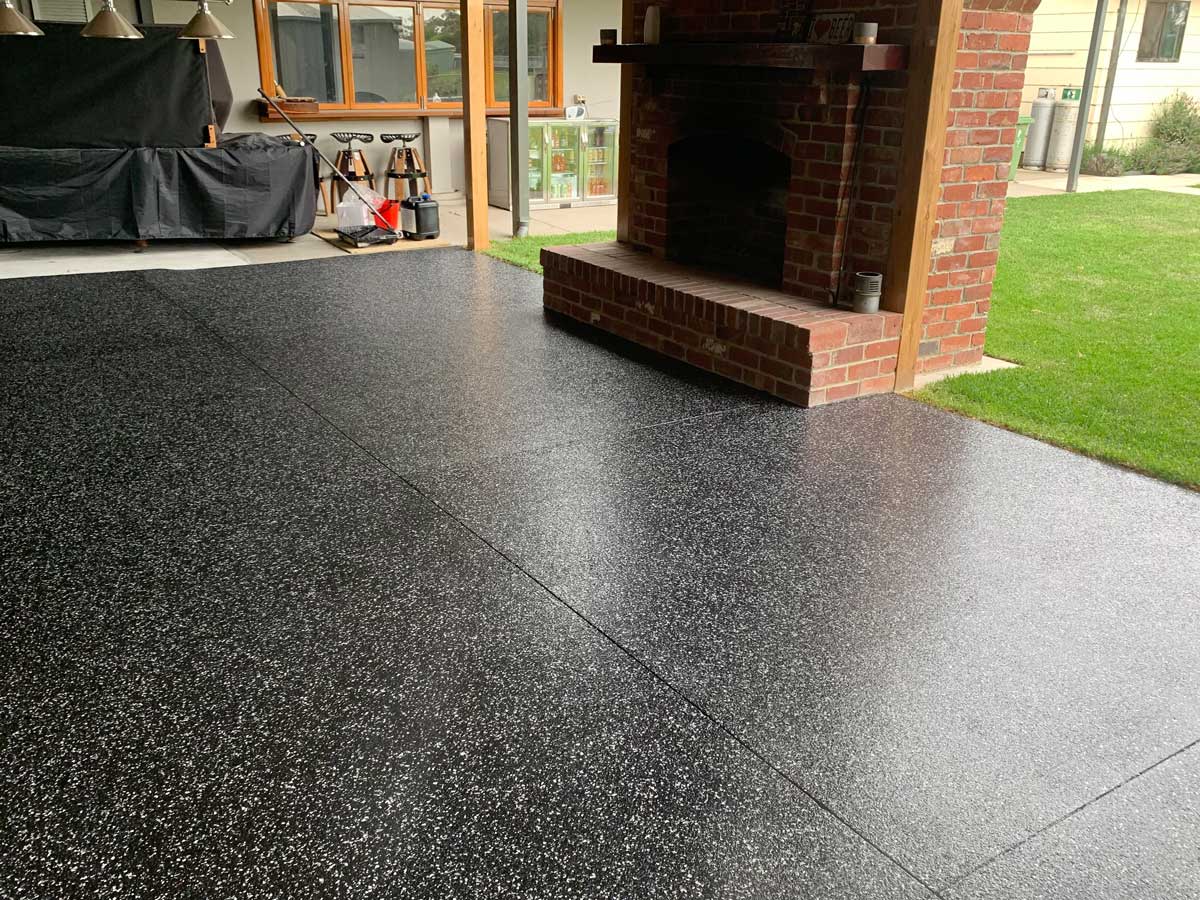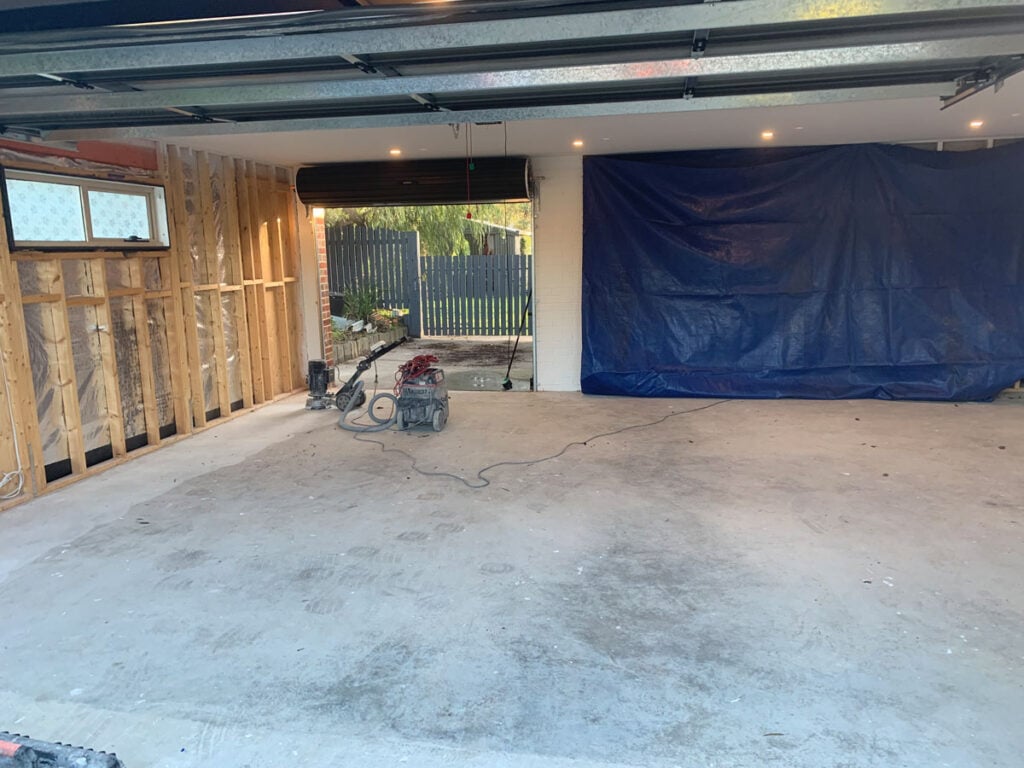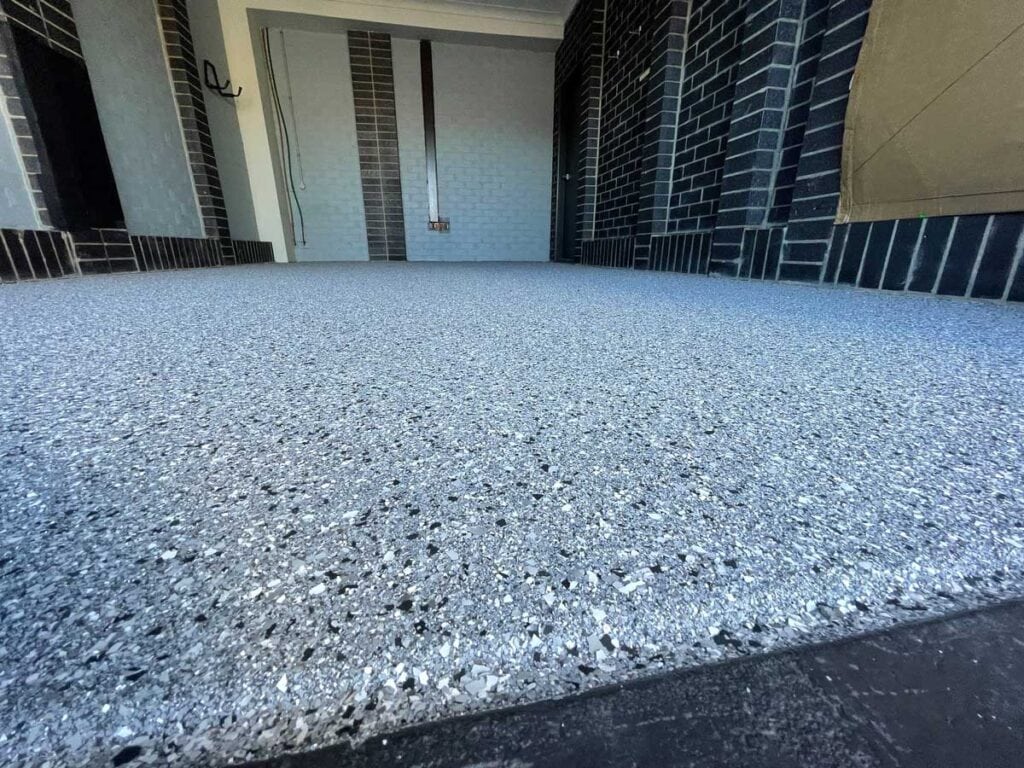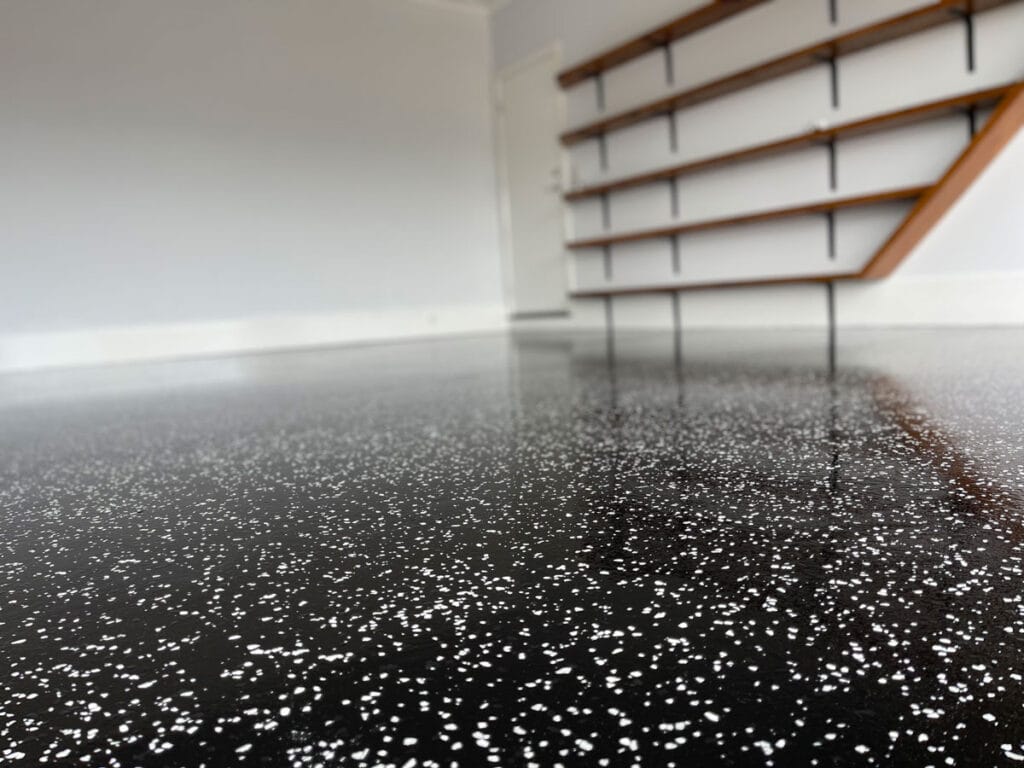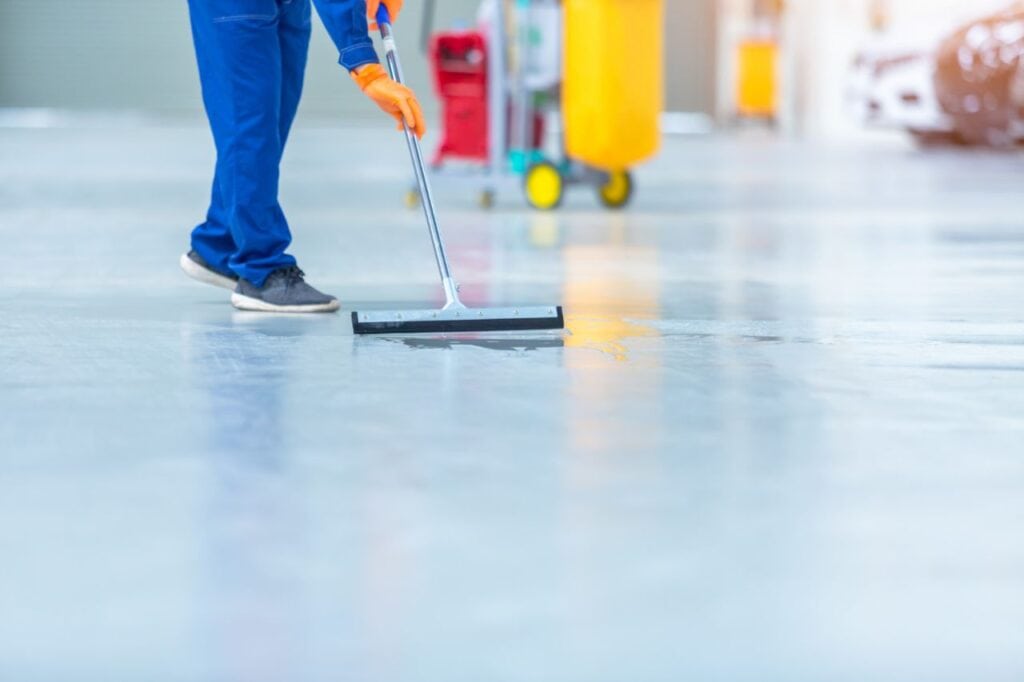Every day, customers are served by businesses that operate in the hospitality sector. Because of the high volume of foot traffic, one of their primary concerns is obviously to maintain their floor tidy and in good shape. This is because the strong foot traffic causes the construction and attractiveness of the surfaces to deteriorate.
Because of this, proprietors of businesses in the hospitality sector are looking for flooring coatings that are not only durable and appealing but also need little work to clean. On the other hand, there are many different choices accessible on the market, so you can find it difficult to decide which one to go with.
Today, there is such a wide variety of flooring alternatives available to choose from for your food service establishment that selecting the most appropriate one can be challenging. It is best to establish a priority list of what you want to receive out of a particular sort of flooring option before making a purchase.
When it comes to selecting the flooring for your kitchen, there are a lot of different factors that need to be considered, such as your budget, how the flooring will look, how easy it will be to clean, how much time will be needed for maintenance, and so on. Epoxy coating is unequivocally the superior choice when compared to the other flooring solutions.
The flooring in your kitchen can be a bit of a challenge due to the fact that it is something that will have an effect on your company on a daily basis. It might be difficult to choose the type of flooring that is ideal for your commercial kitchen because there are currently so many different kinds of flooring that are available on the market.
It is crucial to choose a material that is not only long-lasting but also resistant to stains and dampness, and, perhaps most importantly, is simple to clean and take care of.
Sanitation is the most crucial factor that you have to take into consideration since your industrial flooring must always conform to local health laws. Choosing the appropriate flooring may assist ensure that your sanitary requirements will be met. If your public customers will be able to see the interior of your commercial kitchen, you should prioritize selecting a flooring design that is both functional and aesthetically beautiful.
FAQs About Epoxy Floors Good For Restaurants
What Are The Available Options For Commercial Kitchen Floor Coating?
Although finishes made of 100% solids adhesive are a fantastic choice, poly-cement coatings are an even more advantageous alternative for commercial kitchens.
What Is The Difference Between The Two?
Epoxies have lower application costs than poly-cement finishes, while poly-cement coatings have higher costs.
Epoxies, on the other hand, can be applied with rollers by do-it-yourselfers or handymen; nevertheless, Poly-Cement can only be done with trowels by skilled applicators.
Epoxies, on the other hand, have a life duration of around 3 to 7 years when correctly applied, while a finish made of poly-cement can last up to fifteen years.
Contractors may use particular sand to enhance the thickness of epoxy and bulk it up. This can be problematic, however, because an excessive amount of sand can lower the strength of the finish, and high-traffic areas will begin to show symptoms of wear within a short period of time.
What Is The Cost Difference?
The final price will be determined by a number of factors, including the size of the area to be coated, the clearly specified floor, the required level of preparation, and the finishing system's layer thickness.
On floors larger than 60 square meters, the cost of applying a 2mm resin system is around $80.00 per square meter.
Why My Epoxy Floor Is Failing?
Regrettably, when a job is first finished, the majority of them appear the same, and it can take anywhere from two months to six months for the covering to demonstrate any signs of failure. Epoxy floor coatings can fail for a variety of reasons, and while each situation is unique, the following are some of the more frequent problems that we come with on a daily basis:
- Poor preparation is the single most critical contributor to the failure of an epoxy floor system, making it the most crucial element in the failure of a coating system overall.
- Some contractors have a tendency to do whatever it takes to quote the job low so that they can secure the works, but they then have to make snap decisions to ensure that they are turning a profit on the task; common shortcuts are things like lowering the quality of the work they do or using cheaper materials.
- Poor or no preparation
- Utilization of imported epoxies of inferior quality or at low prices
- Putting on very thin layers
- Increasing the volume of the epoxy by adding an excessive amount of sand or fillers in order to bring down the price.
- Epoxies have a very low tolerance for moisture and will lift if there is hydrostatic pressure. Moisture is another important aspect to consider. Because of this, we believe that a covering made of poly-cement is a far superior option for use in coolrooms and rooms that are close to them.
How To Select The Right Contractor?
- Always perform research or background checks by conducting a few easy searches online, such as reading the reviews on Google or checking their webpage or project images (ensuring the quality of their reviews is correct and their photos are genuine)
- Request references, and after you have them, give those people a call to verify the company's claims on the quality of their service and the efficacy of their product.
- If it is possible, examine one or a few of their works that are older than six months. This is an important component in establishing the quality of the floor because it is easy to modify images so that they look better online. Inspecting one or more of their jobs that are older than six months.
- Before proceeding with the job, you should request that they put a real sample on your floor so that you may test it for a period of four weeks. Because these flooring systems are designed to last for a very long time, you want to be sure that it meets all of your requirements.
- Even though we are all looking for ways to get projects done as cheaply as possible, you need to make sure that you are not compromising on the quality of the work. Here at Sydney Epoxy Floors, we work with honesty and will always send what has been offered without ever prioritizing our profit over the quality of the work.
Reasons Epoxy Flooring Is The Best Option For Any Restaurant
When all of this is taken into account, we are of the opinion that epoxy flooring is the finest choice for the flooring in your restaurant kitchen, and the following are the five reasons why:
It Has Extreme Durability
It's possible that this information will come as a shock to you, but epoxy flooring is seven times stronger than concrete flooring. If your industrial kitchen has a floor made of concrete, we recommend applying an epoxy coating to the surface so that it will be more resistant to wear and tear.
Concrete floors are timeless, but they have the drawback of being permeable. It is recommended that you put an epoxy coating on your flooring in order to transform it into a non-porous surface. This will prevent dusting and stop liquids from penetrating the concrete.
In the event of a chemical spill or acid attack, epoxy floors are more able to handle the situation than concrete ones. Epoxy will provide you with the piece of mind that the floor's beauty will not be ruined or discolored by any spills, which is especially important in commercial kitchens where consumers are likely to be present. Your staff and customers will be left with a negative impression if the floor does not look nice.
It's Aesthetically Pleasing
Epoxy is aesthetically beautiful as a result of the remarkable adaptability it possesses. Because of this, the flooring in your commercial kitchen can be altered to meet all of your specific requirements. There is a wide selection available, including a variety of colors, patterns, and designs.
You may even use different colors for each of the numerous work zones you make on your flooring to accommodate the various needs of your kitchen.
Epoxy flooring has a stunning aesthetic, which boosts worker morale, and it also increases the amount of natural light entering a room by 200%. Employee motivation is typically reduced in an environment that is monotonous and poorly lit. Additionally, the improved brightness will be appreciated by your clientele. A business kitchen that has enough natural light will give off the impression that it is spotlessly clean and well-maintained.
Easy Installation And Maintenance
However, despite its speed and simplicity of installation, epoxy is not a "do it yourself" project. Employing a professional to install your flooring will ensure that it is done right and on time, allowing you to get back to the business of attending to your customers. Epoxy provides the most efficient and economical choice for flooring due to the ease with which it can be installed.
Epoxy floor coverings are designed to withstand high foot traffic and contribute to the protection of the flooring that is installed underneath. In addition, the surface is resistant to scratching, which means that it will keep your floors looking good for a good many years. As a consequence of this, epoxy flooring offers the best value for the money invested because it requires very little to no service and upkeep charges.
Safe And Hygienic
At every business, the health and safety of the staff are the top priority. You can take preventative action by selecting the appropriate flooring, which will significantly reduce the likelihood of any potential safety breaches. Because of its resistance to heat, fire, and slipping, this kind of floor coating is an excellent choice for flooring in your commercial kitchen.
Urethane Cement
If you are still undecided about whether or not you should install epoxy flooring in your kitchen area, we have another possibility for you to take into consideration, and that is urethane cement. Another fantastic choice for use in commercial kitchens, just like our ThermalCrete coating, you can also go with this.
This is a heavy-duty alternative that is often applied at a thickness of 14", but it can be overkill in certain industrial kitchens that are only moderately busy. This system is particularly strong and long-lasting, as it was developed specifically for use in establishments that manufacture food and beverages.
Epoxy has a number of benefits, the most notable of which is its resistance to thermal shock, which is particularly useful in settings where hot liquids frequently come into contact with the flooring. Additionally, urethane cement has a more industrial appearance, in addition to a matte surface, which may not be something that is wanted in all restaurant kitchens.
Mould Resistance
Mold can easily grow on the flooring of restaurants because of the constant flow of foot activity, as well as any dropped food or drinks. Even if it were well cleaned on a regular basis, this would still be a cause for concern. Because epoxy flooring is completely resistant to mold, there is a decreased likelihood that restaurants will need to restore their flooring.
Durable Surface
This resilient flooring is not likely to show signs of wear such as scratches, scrapes, or wear patterns. Appreciate a surface that is far more durable than the majority of the other available options, particularly in locations where there is a lot of activity. The layer is resistant to dust and degradation and is uniform throughout.
Non-Slip Flooring
Do not go with a flooring solution that could put both your personnel and your clients in harm's way. Epoxy is an excellent choice for flooring that should not be slippery. Epoxy is an excellent solution for preventing slips, falls, and other accidents in restaurants, and this applies whether the coating is used only in the kitchen or throughout the entire establishment. You won't have to sacrifice aesthetic value for protection thanks to the wide range of colors and patterns that are available. Epoxy coatings have the additional benefit of obviating the need to buy unattractive non-slip mats for use in commercial kitchens and dining establishments.
Epoxy flooring is a highly popular suggestion that is worth considering whether you manage a restaurant or are in the market for long-lasting flooring solutions for other types of companies. Even though epoxy may be applied by hand, doing it on your own can be laborious, time-consuming, and lead to less than professional results. Get in touch with an epoxy and floor expert in your area to learn more about installing this kind of dynamic flooring in your establishment, whether it be a restaurant or a business.
Choosing Colors For Epoxy Coated Industrial Concrete Restaurant Floors
It is well recognized that the use of color in restaurant flooring can provide important benefits, and it has the potential to influence both mood and attitude. In order to differentiate themselves from other dining places and attract customers, a lot of restaurants opt for imaginative interior designs that include distinctively colored flooring as a component of their overall concept or design. It is also possible to use the colors of the flooring to distinguish between the various portions of a venue, such as a bar, dining areas, and dancing floors. There are a lot of different things to think about when trying to decide which business or industrial floor covering system colors are best for a restaurant's property.
The Psychology Of Colors
Because colors have the ability to evoke specific emotions and ambiance, the floor, which is present all through the space, is a particularly good place to apply this theory.
For instance, rooms painted in colors that are lighter and less dominant give off an impression of airiness, which creates the illusion that there is more space in the room, whereas rooms painted in darker colors might produce a sensation of closeness.
Depending on one's memories, certain colors might bring back quite particular associations all on their own. For instance, the colors green and blue frequently bring to mind a scene that one has encountered in the past that was peaceful and unruffled. In the same vein, browns and grays can help to create an ambiance that is unobtrusive, whereas the color purple is frequently associated with opulent settings.
Principal And Accent Colors For Floor Coatings
Certain hues are more effective as the primary emphasis, while others are more suitable as the accent stones. If a business intends to alter the wall paint color or the décor in their restaurant on a recurrent basis, having neutral floors provides them with additional flexibility.
Bright colors can act as a good stimulant, but care must be taken to avoid overwhelming the senses. Yellow, for instance, makes for an excellent accent color, but when used as the primary hue throughout an entire business or industrial concrete slab coating, it can be rather alarming. A similar impression is produced by the color black. In certain contexts, having a floor that is entirely black in color might give the impression that the room is hostile, while at the same time being an exceptionally attractive accent color.
Floor Color That Complements The Cuisine
Even if the color of the floor should add to the overall theme of the establishment, it should also match the food. While spicy food and warmer tones are a natural pairing, colder tones may work well with some seafood dishes due to their ability to create a beautiful harmony. Could have an effect on the clients' levels of hunger.
According to some research, the colors red, blue, and purple may have an appetite-suppressing effect. On the other side, studies have shown that the color orange stimulates appetite, which makes it an ideal color for use in industrial and commercial concrete floor surfaces in a variety of restaurant situations.
Creating A Mood With Flooring Systems
When the owners and managers of a restaurant have decided on a concept for their establishment, the next step is to consider the color scheme for the restaurant flooring system.
Even though it can be appealing to select a color scheme based on the most recent fashions, most businesses would be wise to steer clear of simple fashion in their color scheme selections. Instead, those in charge of making decisions will want to devise a color scheme for their restaurant that not only enhances the atmosphere they are going for but also the food.
After that, the proprietors of the restaurant are able to create a one-of-a-kind persona for their establishment with the assistance of flooring that has been thoughtfully chosen and features softly colored tiles. Customers are more likely to return to a business that provides a unique dining experience, one that includes attractive flooring, as well as delicious cuisine that is provided in a setting that is easily distinguishable.
Is Epoxy Flooring The Best Option For The Hospitality Industry?
Here are some of the reasons why you should consider purchasing epoxy if you are seeking the best flooring option for your new vacation property or want to replace your current one:
Epoxy Can Withstand Wear And Tear
Epoxy has a surface that can endure persistent wear and tear, which is one of its most important properties. As a result, it is a perfect choice for establishments such as restaurants, hotels, bars, and other locations that have a large volume of foot traffic. In addition to this, it is capable of withstanding the weight of large machinery and equipment that is typically utilized in the hospitality and retail industries.
It should come as no surprise that epoxy, which is exceptionally long-lasting and resistant to a wide range of traffic intensities, is considered to be among the very best solutions for use in the hospitality sector.
Easy To Clean
To properly maintain your premises, you will need to put in a lot of effort because the hospitality areas and facilities see a high volume of foot traffic and the regulations governing cleanliness are extremely stringent. Let's say you want to streamline the cleaning procedure such that it takes less time, is less difficult, and saves you time.
If this is the case, you might want to think about installing epoxy finishes in the kitchen, the bathroom, and any other indoor parts of your hospitality business. Epoxy, due to the fact that it is non-porous and does not absorb liquids, is very simple to clean.
Because of this, you can be certain that there will not be any stains caused by a variety of chemicals or spills caused by food and beverages. You will be able to restore the pristine appearance of your floor with just one sweep of the mop.
Resin Coatings Are Not Slippery
You will want to prevent slips and falls at all costs, but unfortunately, they are some of the most regular mishaps that can take place in the workplace, particularly in the hospitality business. We recommend that you apply an element to your epoxy floors that prevents slipping since this will keep both your personnel and your customers safe. There is more than one kind of these additives; thus, we recommend that you seek the advice of industry experts in order to identify which one will be most beneficial to your company.
Epoxy Flooring Is Available In Different Colours And Styles
Epoxy floors are offered in a variety of designs, colors, and styles, ranging from the more traditional light and dark tones to intricate patterns. Because of this, they have the potential to be an outstanding addition to the interior of your home. For instance, you may make darkly lit areas livelier by using lighter tones, and a fashionable industrial interior style can compliment a gray color palette.
However, it goes without saying that any hue and fashion choice has both positives and negatives. Nevertheless, you will be in luck because a professional team that you employ to install epoxy surfaces in your commercial space will be able to supply you with extra information and assist you in making the most appropriate decision.
The Installation Process Is Swift
Simply because you need new flooring placed does not mean that you will be required to close your business while the work is being done. Everything is contingent on the state of the floor, whether or not it needs to be prepared, whatever flooring coating you previously had in there, and a plethora of other criteria.
Experts in epoxy flooring and shined concrete should check the site in order to provide an accurate estimate of the amount of time the process will take and the stages it will consist of. This is the best approach to assessing how long the process will continue.
Schedule A Professional Consultation
You are welcome to get in touch with us at any time if you are unsure as to whether or not the epoxy will be the best option for your commercial property, or if you are unsure whether or not your current surface will be suitable for the application of the resin coating.
We provide a comprehensive solution that includes everything from floor preparation and leveling to the installation of resin and concrete floors at a single location. If you already have epoxy that really needs to be renovated, we can provide specialist reconstruction to remove the layer, repair cracks and cracks, and apply a new surface of epoxy adhesive that will make it look bright and brand new. Furthermore, if you currently have epoxy that requires to be reconstructed, we can provide this service to you.
Conclusion:
An epoxy is a form of flooring system that is utilized in commercial kitchens an exceptionally widespread amount of the time. When it comes to refinishing old kitchen flooring and creating fully new surfaces that have been sealed, it comes in especially helpful. The application of epoxy results in a kitchen floor that is both seamless and extremely sanitary, which is one of the many benefits of using epoxy.
The installation of epoxy flooring involves the use of epoxy resins and colorants; these two components, along with additives, make it possible to create a textured floor that is resistant to slipping. When it comes to flooring in a commercial kitchen, this is definitely what you want to find. The addition of silica sand, which includes building up the floor and dissipating heat, is a common practice when working with epoxy.
The fact that the application of epoxy provides a layering system is yet another advantage of employing epoxy for the flooring of commercial kitchens. As a consequence of this, you will produce a thick substance for the flooring that can be coved up the walls of the kitchen. This will direct water away from the corners of the kitchen and towards the drains. In addition, this sturdy base can assist in the creation of a smooth transition between the floor of the kitchen and the wall of the kitchen.
Because epoxy flooring is one of the varieties that is considered to be the most suitable for use in a commercial kitchen, we have placed it at the very top of the list of possibilities that are available to us.
Typically, epoxy flooring lasts 2 to 3 years in heavy traffic. Commercial properties—like garages, restaurants, or factory spaces—with lots of daily foot traffic can expect this experience. However, with proper care and maintenance, your epoxy flooring may last much longer.
- Strong Application Fumes. During the epoxy application process, wet epoxy gives off an unpleasant smell. ...
- Long Curing Time. ...
- Slippery When Wet. ...
- Economical Flooring Choice. ...
- Resistant to Damage. ...
- Weather-withstanding. ...
- Aesthetically Pleasing. ...
- Protects and Decreases Wear & Tear.
Extremely safe – Epoxy is a very safe coating for your hard floors. It's slip resistant, shock resistant, and less abrasive than concrete and other types of industrial flooring. ... It can also withstand heat of up to 200 degrees, making it a better choice than most other types of flooring when it comes to fire resistance.
